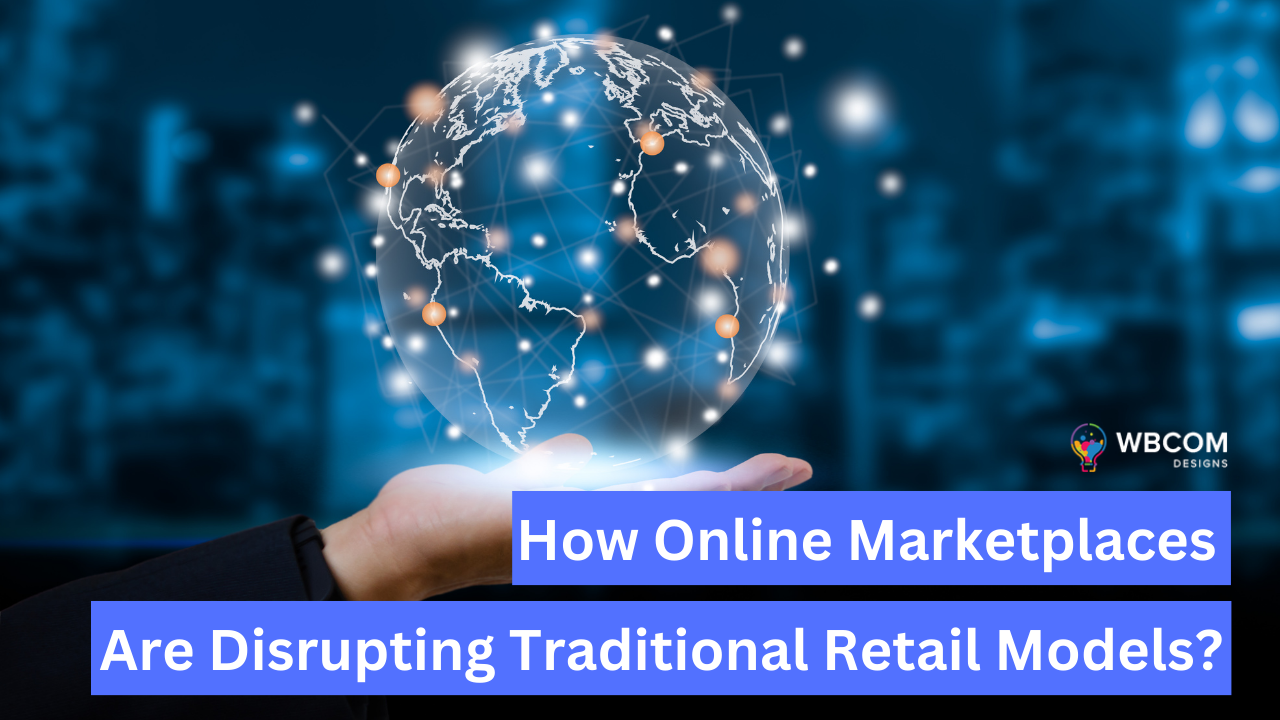Attention all shoppers! The retail industry is experiencing a seismic shift, and it’s all thanks to online marketplaces. These virtual marketplaces have taken the shopping world by storm, disrupting traditional retail models and leaving traditional brick-and-mortar stores in the dust. With the rise of e-commerce, customers now have more choices than ever before, and retailers are scrambling to keep up. So, why should you care about this retail revolution? Whether you’re a consumer or a business owner, the impact of online marketplaces on the retail industry is something that cannot be ignored. In this blog post, we’ll explore how online marketplaces are changing the game and why it matters to you. Get ready to discover the future of shopping!
Table of Contents
ToggleAdvantages of Online Marketplaces
Online marketplaces have become increasingly popular in recent years, and for good reason. Here are some of the advantages that online marketplaces offer to consumers and businesses:
- Increased Convenience: Online marketplaces offer consumers the convenience of shopping from the comfort of their own home, without the need to physically visit a brick-and-mortar store. With just a few clicks, consumers can easily compare products, prices, and reviews from different sellers all in one place.
- Wider Product Selection: Online marketplaces typically offer a wider selection of products compared to traditional brick-and-mortar stores. This is because online marketplaces allow sellers from all over the world to offer their products to a global audience.
- Competitive Pricing: With so many sellers offering similar products on online marketplaces, pricing becomes more competitive. This often leads to lower prices for consumers, as sellers try to undercut their competitors.
- Lower Overhead Costs: Sellers on online marketplaces often have lower overhead costs compared to traditional brick-and-mortar stores. This is because they do not need to pay for rent, utilities, or other expenses for running a physical store. This can translate to lower prices for consumers.
- Access to Global Markets: Online marketplaces allow small businesses to reach a global audience without needing a physical storefront. This can be a game-changer for small businesses that may not have the resources to open physical stores in different locations.
Some of the most successful online marketplaces include:
- Amazon: Amazon is one of the largest online marketplaces in the world, offering a vast selection of products from books and electronics to clothing and home goods. Amazon has a reputation for offering competitive prices and fast shipping.
- eBay: eBay is another well-known online marketplace that allows individuals and businesses to buy and sell products. eBay offers a wide range of products, including vintage and collectible items.
- Etsy: Etsy is a popular online marketplace for handmade and vintage items. Etsy sellers offer a variety of unique and creative products, from jewelry and clothing to home decor and art.
Disadvantages of Traditional Retail Models
Despite their long-standing history and presence in the retail industry, traditional brick-and-mortar stores face significant challenges in today’s retail landscape. Here are some of the disadvantages of traditional retail models:
- Limited Reach: Traditional brick-and-mortar stores are limited in terms of the geographic area they can serve. They rely on foot traffic and customers living within a certain radius to sustain their business. This can be a disadvantage compared to online marketplaces with a global reach.
- Higher Overhead Costs: Brick-and-mortar stores have higher overhead costs compared to online marketplaces. They need to pay for rent, utilities, and other expenses associated with running a physical store. This can make it more difficult for them to offer competitive pricing and may lead to higher consumer prices.
- Limited Product Selection: Brick-and-mortar stores typically have limited floor space to display their products, which can result in a limited selection for consumers. Additionally, they may not have the resources to stock a wide variety of products or niche items, unlike online marketplaces that can offer virtually endless product selection.
- Inability to Compete with Online Pricing: Online marketplaces have the ability to offer lower prices due to their lower overhead costs and increased competition. Brick-and-mortar stores may struggle to compete with online prices and may lose customers as a result.
- Limited Operating Hours: Brick-and-mortar stores typically have set operating hours, which can be a disadvantage when compared to online marketplaces that operate 24/7. This can make shopping more difficult for customers, especially those with busy schedules.
- Lack of Technological Advancements: Brick-and-mortar stores may struggle to keep up with the technological advancements offered by online marketplaces. For example, online marketplaces may offer personalized recommendations and targeted marketing, which can improve the shopping experience for consumers.
As a result of these disadvantages, brick-and-mortar stores are struggling to keep up with online marketplaces. They face significant challenges in attracting customers, offering competitive pricing, and providing a convenient shopping experience. In order to survive in today’s retail landscape, traditional retailers must adapt to the changing market and embrace new technologies and strategies.
How Online Marketplaces Are Disrupting Traditional Retail Models?
Online marketplaces are disrupting traditional retail models by offering a wide product selection, convenient shopping experiences, competitive pricing, and reduced barriers to entry for small businesses. These platforms provide consumers with access to an endless variety of products and services, from anywhere and at any time, which traditional retail models struggle to match.
The convenience of online shopping has led to an increase in demand, forcing traditional retailers to adapt or face the risk of becoming obsolete. Additionally, online marketplaces offer lower prices through increased competition, and small businesses are now able to sell their products without the need for expensive brick-and-mortar stores. As a result, online marketplaces have become the go-to destination for consumers and businesses alike, changing the game for traditional retail models.
The Future of Retail
The future of retail is rapidly changing as a result of the rise of online marketplaces. It is likely that we will see a continued shift away from traditional brick-and-mortar stores towards online shopping, which will fundamentally change the way we shop.
One potential impact of this shift is that consumers will have even greater access to a wider range of products and services. Online marketplaces will continue offering endless products, with personalized recommendations and targeted marketing based on individual preferences. This will provide consumers with a more tailored shopping experience, leading to greater customer satisfaction and loyalty.
The rise of online marketplaces will also impact businesses. Small businesses will continue to have increased opportunities to sell their products and services on these platforms, without the need for expensive brick-and-mortar stores. However, larger retailers may struggle to keep up with the competition and may need to invest more in their online presence to remain relevant.
The economy as a whole may see a shift towards a more service-based economy as opposed to a goods-based economy. With the rise of online marketplaces, more people may choose to sell their services online, leading to the growth of the gig economy.
However, there are potential downsides to this shift towards online marketplaces. It may lead to the loss of jobs in traditional retail sectors, such as sales assistants and cashiers. Additionally, there are concerns around the impact of online marketplaces on the environment, as there may be increased shipping and packaging waste.
Wrapping Up Words
Online marketplaces have completely changed the way we shop and disrupted traditional retail models. With the convenience of online shopping, consumers can now access a wider range of products and services from the comfort of their homes. This has led to increased competition, forcing traditional retailers to adapt and offer more personalized and convenient experiences to stay relevant. The rise of online marketplaces has also created opportunities for small businesses and entrepreneurs to reach a larger audience and compete with bigger players. As technology continues to evolve, we can only expect online marketplaces to become even more integrated into our daily lives. So what are you waiting for? Let’s build your dream online marketplace today!








